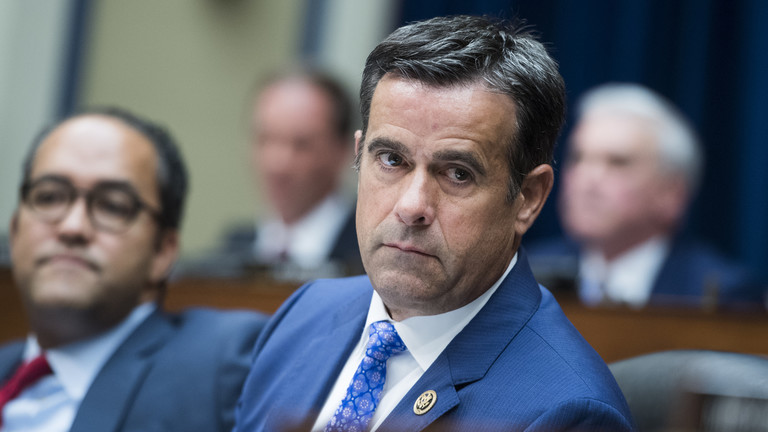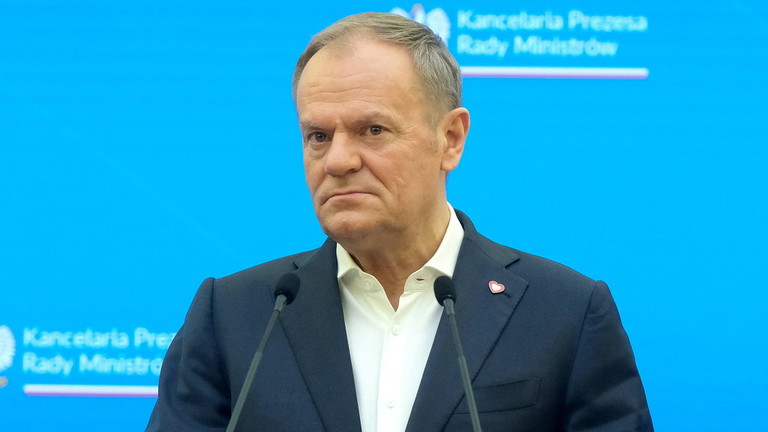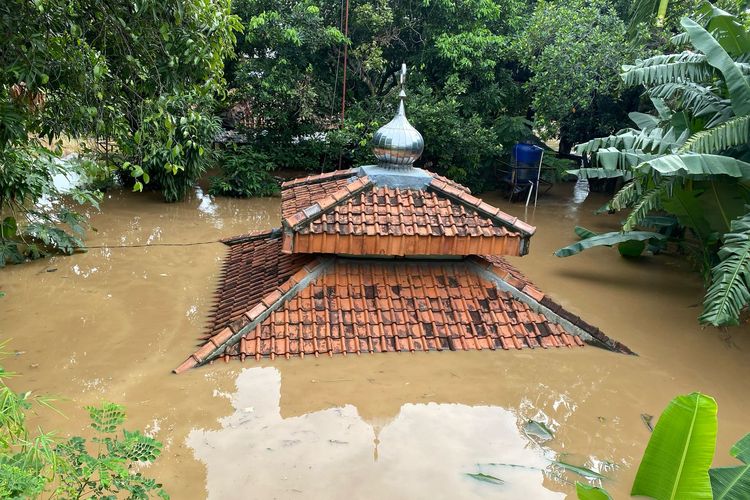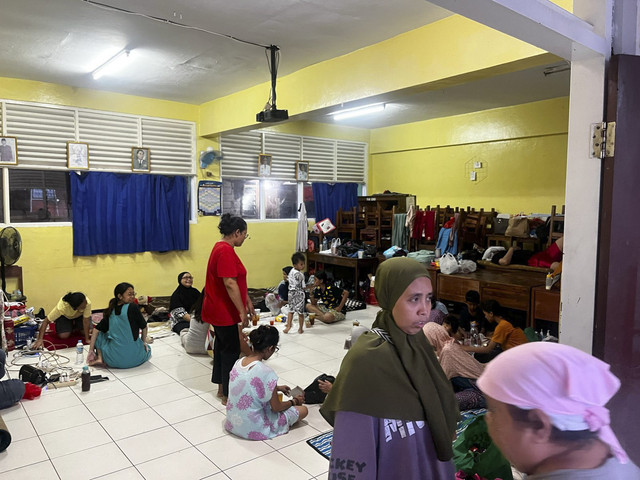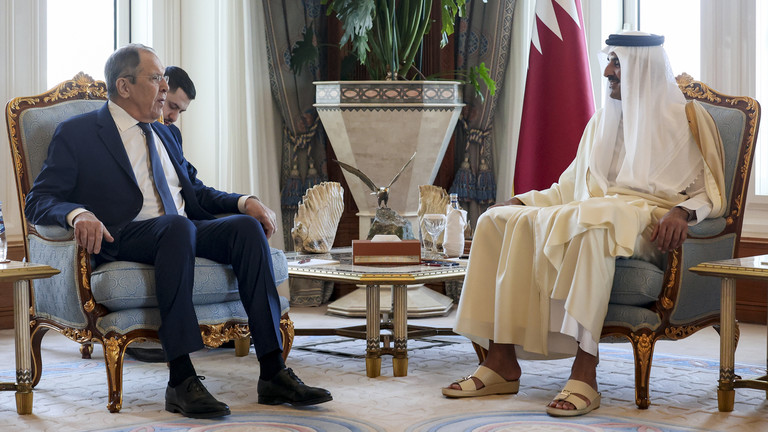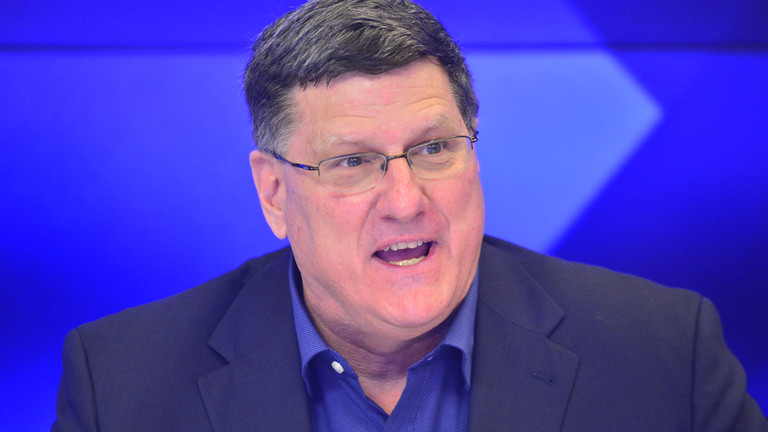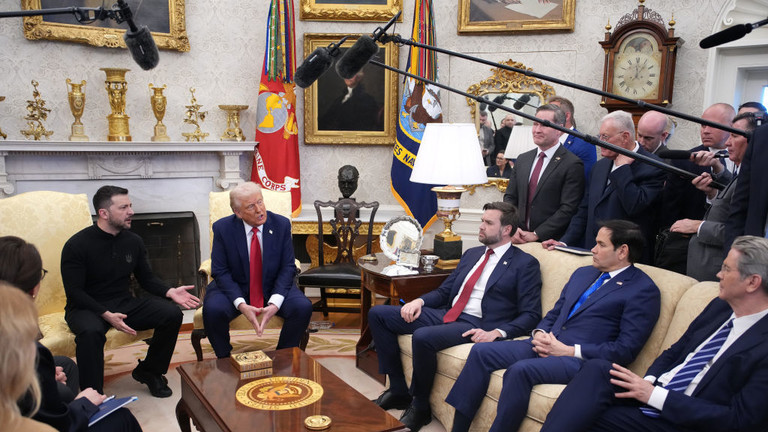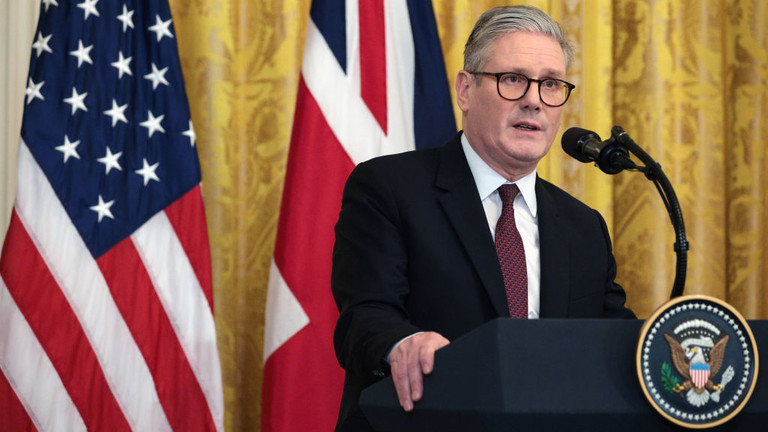What does Russia want from the Middle East?
Russian Foreign Minister Sergey Lavrov (L) and Qatari Emir Sheikh Tamim bin Hamad Al-Thani in Doha, Feb. 26, 2025. ©Russian Foreign Ministry Press Service via AP
Russian Foreign Minister Sergey Lavrov embarked on a diplomatic tour across the Middle East, with the primary objective of strengthening bilateral relations, discussing pressing regional issues, and fostering strategic cooperation. His itinerary included three key capitals, each playing a significant role in the geopolitical landscape of the region.
The first stop was Ankara, where Lavrov held talks with his Turkish counterpart, Hakan Fidan, covering a broad range of topics, including bilateral cooperation, regional security, and trade and economic relations. This was followed by a meeting with Turkish President Recep Tayyip Erdogan, during which special attention was given to the Syrian settlement, the dynamics of Russian-Turkish relations, and coordination efforts within multilateral frameworks.
The next destination was Tehran, where Lavrov met with Iranian Foreign Minister Abbas Araghchi and later held discussions with President Masoud Pezeshkian. The talks focused on energy partnerships, the development of transport corridors, and collaboration on the international stage, particularly concerning sanctions pressure and the alignment of positions within various multilateral organizations.
The final leg of the tour took Lavrov to Doha, the capital of Qatar. There, he engaged in negotiations with the Emir of Qatar, Sheikh Tamim bin Hamad Al Thani, followed by a meeting with the country’s prime minister and foreign minister, Sheikh Mohammed bin Abdulrahman Al Thani. The discussions centered on energy cooperation, investment partnerships, and joint initiatives aimed at addressing regional crises.
Notably, the selection of these three countries for the tour underscores the context of Syria, where Moscow remains actively engaged both diplomatically and politically. Türkiye, Iran, and Qatar are pivotal players in the Syrian settlement process, and their positions will be crucial in shaping the region’s future. Despite Western assertions that Moscow’s influence in Syria has waned following the departure of Bashar Assad, Russia continues its dialogue with the new Syrian leadership under Ahmad al-Sharaa. This reaffirms Russia’s steadfast strategic course in the Middle East and its commitment to maintaining a significant role in regional affairs, safeguarding its interests, and proposing diplomatic solutions amid an evolving balance of power.
What was discussed in Ankara?
During his visit to Türkiye, Lavrov held talks with Erdogan and Fidan. The discussions focused on bilateral cooperation, the situation in Syria, the Ukraine conflict, and broader regional developments, including the escalation of the Israeli-Palestinian conflict.
Despite a complex history and existing disagreements, Russia and Türkiye continue to develop their partnership. Ankara remains a crucial trade and economic partner for Moscow and plays a key mediating role in international negotiations. Erdogan has repeatedly emphasized Türkiye’s ambition to serve as a diplomatic bridge between Russia and the West, and in this context, Türkiye reaffirmed its willingness to facilitate dialogue between Moscow and Kiev by offering itself as a negotiation platform.
However, an equally critical issue on the agenda was the Syrian settlement. Moscow continues to maintain its influence in Syria despite the recent political transition in Damascus, where the leadership of Assad has been replaced by a new administration under al-Sharaa. While Western countries have attempted to frame this change as a weakening of Russia’s position, Moscow has swiftly adapted to the new reality, establishing ties with the new Syrian authorities and maintaining its active diplomatic and military presence in the region.
For Ankara, the Syrian issue remains strategically important, given its concerns over Kurdish armed groups, refugee flows, and the necessity of securing its position in northern Syria. Despite tactical disagreements, Russia and Türkiye remain engaged in dialogue on Syria, as both sides recognize the importance of stability and maintaining control over their respective spheres of influence.
The discussions also covered broader Middle Eastern issues, particularly the ongoing escalation of the Israeli-Palestinian conflict. Moscow has traditionally maintained a balanced stance, supporting a two-state solution and actively engaging with Arab nations in the region. Meanwhile, Türkiye seeks to strengthen its influence in the Islamic world, leveraging the conflict in Gaza to enhance its regional leadership.
Notably, against the backdrop of Lavrov’s tour, a closed-door meeting between Russian and US representatives took place on February 27 at the US Consulate General in Istanbul. While no official statements were made regarding the substance of these talks, reports suggest that the key topic was the potential restoration of diplomatic communication channels between Moscow and Washington.
Naturally, the primary focus was on bilateral relations, the Ukraine conflict, and regional security. Despite the harsh public rhetoric, the very fact that the discussions took place indicates that both Washington and Moscow, despite the deep crisis in their relations, acknowledge the necessity of certain mechanisms for interaction. It is likely that the talks addressed the risks of further escalation in Ukraine, security concerns in Syria, and potential areas of cooperation in other regions. The meeting in Istanbul also suggests that the West may be interested in re-establishing diplomatic engagement with Moscow, even if only in a limited capacity.
Guests from Moscow are always welcome in Tehran
Lavrov’s visit to Iran marked a significant milestone in Russian-Iranian relations, highlighting the ongoing movement toward closer cooperation amid mounting external pressure. Lavrov’s discussions with Pezeshkian and Araghchi covered a wide range of topics, from bilateral trade and economic cooperation to the situation in Syria and the Israeli-Palestinian conflict.
One of the key factors driving the intensification of Russian-Iranian political ties is the renewed wave of pressure from the administration of US President Donald Trump, which has once again ramped up sanctions and diplomatic constraints on Tehran. In response to this escalating pressure, Iran is increasingly turning to strategic partnership with Moscow, seeking support in countering Western influence and strengthening coordination on the international stage.
The signing of a new intergovernmental treaty between Russia and Iran in January laid the foundation for deeper cooperation across various sectors, from economic and energy collaboration to military and political engagement. The talks in Tehran reaffirmed the commitment of both nations to solidifying their strategic alliance, utilizing existing multilateral platforms such as the Shanghai Cooperation Organization (SCO), BRICS, and the Eurasian Economic Union (EAEU), which offer Iran additional opportunities for economic integration and diplomatic insulation from Western sanctions.
Lavrov’s visit also took place against the backdrop of escalating tensions between Iran and Israel. While Tehran remains interested in de-escalation, it continues to face increasing pressure from the Israeli authorities, led by Prime Minister Benjamin Netanyahu, who – backed by Washington – pursues a hardline anti-Iranian policy.
In this volatile environment, Russia is positioning itself not only as a strategic partner to Iran but also as a potential mediator in regional conflicts, particularly concerning the Syrian settlement. It is evident that Moscow is working to bridge the gap between Tehran and the new leadership in Damascus under al-Sharaa. The recent transition in Syria has introduced new dynamics into the regional balance of power, and Russia, maintaining its influence in the country, is now seeking to establish new mechanisms for cooperation between Iran and the new Syrian government.
Despite its deep involvement in the Syrian conflict, Tehran is also exploring avenues for engagement with the new Syrian leadership. This could contribute to reducing regional tensions, as Iran aims to avoid further escalation amid Israeli threats and continued US pressure.
Beyond political affairs, Lavrov and Iranian officials devoted particular attention to expanding bilateral economic cooperation. With both Russia and Iran under Western sanctions, the two nations are working to enhance trade, particularly in the energy and transportation sectors. Joint projects could help Iran mitigate the negative effects of economic restrictions by providing access to alternative financial and logistical mechanisms, while Moscow sees an opportunity to further solidify its economic presence in the region.
The talks also touched upon the Israeli-Palestinian conflict, as well as developments in Lebanon and Afghanistan. Sharing similar positions on these issues, Russia and Iran are coordinating their diplomatic efforts to increase their influence over regional dynamics.
Lavrov’s visit to Tehran reaffirmed that Russian-Iranian relations are deepening, transitioning into a phase of comprehensive strategic partnership. The growing anti-Iranian stance of Washington and Israel is inevitably pushing Tehran toward even closer ties with Moscow, including both diplomatic and military cooperation.
At the same time, Moscow is leveraging this moment to expand its footprint in the Middle East, facilitating dialogue between Tehran and the new authorities in Damascus while strengthening economic collaboration. As Western pressure continues to mount, the Russian-Iranian alliance is becoming an increasingly significant factor in global politics, shaping the regional balance of power in profound ways.
There’s always something to discuss in Doha
On February 26, Lavrov visited Doha. In addition to bilateral cooperation, the discussions centered on pressing regional and global challenges, including the conflict in Gaza, the situation in Syria, the broader dynamics of Middle Eastern politics, and the Ukraine conflict.
In recent years, Qatar has pursued a pragmatic foreign policy strategy, focused on diversifying partnerships beyond its traditional ties with the US and the EU. Russia, China, India, and other major economies have become key pillars of Doha’s efforts to establish stable economic and political relationships. Against this backdrop, Russian-Qatari cooperation has reached a new level, as evidenced by growing investment projects and a deepening political dialogue.
Lavrov announced that the Russian Direct Investment Fund and Qatar’s sovereign wealth fund are preparing joint energy projects worth over $1 billion. Qatari investors are already among the largest shareholders in Russia energy giant Rosneft, while Doha itself serves as the headquarters for the Gas Exporting Countries Forum, underscoring its significance in the global energy sector.
However, cooperation between Moscow and Doha extends beyond economic interests. Qatar has played an active role in mediation efforts related to the Ukraine crisis, particularly in humanitarian initiatives such as reuniting Russian and Ukrainian children with their families. This highlights the evolving role of Gulf monarchies as key intermediaries in global conflicts, and Moscow appears to welcome these initiatives, recognizing Doha as a potential partner in a range of international issues.
One of the key topics of discussion was Syria. The change in leadership in Damascus in December 2024 marked a new phase in Syrian politics, with al-Sharaa gradually shaping the country’s foreign policy agenda. Moscow is particularly interested in stabilizing the situation, especially in the context of maintaining its military presence and the operation of its bases in Syria.
Another critical topic was the escalation in Gaza and Lebanon. Both Moscow and Doha expressed concern over Israel’s ongoing military operation in Gaza and strikes on southern Lebanon. Lavrov stressed that these actions contradict UN Security Council resolutions and peace agreements between Israel, Hamas, and Hezbollah.
Qatar plays a crucial role in mediating the conflict between Israel and Hamas, facilitating negotiations and humanitarian initiatives. With its unique channels of communication with various factions, including Palestinian organizations, Doha has emerged as an important diplomatic player. Russia, which has traditionally supported a two-state solution, remains committed to resolving the conflict, though maintaining a balanced approach between Israel and Arab states is becoming increasingly difficult in the current climate.
Another factor contributing to regional instability is the growing tension between Iran and Israel. Moscow may see Doha as an additional channel for engagement in the region.
Qatar’s role as a mediator, its economic power, and its ability to engage with various political forces in the region make Doha an increasingly valuable partner for Moscow. In recent years, Gulf states have significantly enhanced their global standing, and Moscow now views Arab monarchies as an important new factor in international politics.
A new political course in Damascus: Pragmatism and the pursuit of stability
Syria is undergoing significant political changes that are shaping a new reality for both the country itself and its key partners, including Russia. The recent phone conversation between Russian President Vladimir Putin and al-Sharaa was a strong signal that Moscow acknowledges the new political landscape in Damascus and is prepared to engage with the new authorities in a pragmatic and constructive manner.
Following the annulment of the 2012 constitution and the dissolution of the old security structures, Syria has entered a new phase of political transformation. Al-Sharaa has announced plans to establish conditions for presidential elections within the next four to five years, reflecting the new leadership’s commitment to building a stable and legitimate political system.
Notably, the new Syrian government is demonstrating pragmatism by fostering dialogue with Moscow while remaining guided by its own national interests. This is a natural course of action – during a transitional period, Syria seeks international support while maintaining sovereignty over its decision-making processes.
Moscow understands that Syria’s new leadership will not adhere to the previous patterns of engagement but will instead act based on the country’s evolving political, economic, and social realities following more than a decade of conflict. In this context, it is crucial for Russia not only to preserve its influence but also to adapt its strategy to the new Syrian landscape by offering pragmatic cooperation, particularly in economic and humanitarian spheres.
During the conversation, Putin reaffirmed Russia’s willingness to support the improvement of Syria’s socio-economic conditions. This likely implies assistance in infrastructure and energy projects, as well as participation in the reconstruction of the war-torn economy. Given the current international landscape, attracting investments and strengthening trade and economic ties are critical for Damascus, and Moscow remains one of its key partners in this regard.
A significant milestone in this transition was the first nationwide dialogue forum initiated by Syria’s new leadership. Held in Raqqa, the event underscored Damascus’ efforts to foster internal political consensus. However, the absence of representatives from the US-backed Kurdish Autonomous Administration highlights ongoing political rifts within the country.
Kurdish leaders continue to emphasize the need for dialogue, but their exclusion from the official political process suggests that divisions within Syria remain deep-seated. Mazloum Abdi, the commander of the Syrian Democratic Forces (SDF), and Afeen Soweid, co-chair of the Democratic Autonomous Administration, stress the importance of including all Syrian factions in the political process. However, in practice, there remains a notable distance between Kurdish structures and the new government in Damascus.
Syria’s transitional period presents both challenges and opportunities for its new government and its international partners, including Russia. Moscow understands that al-Sharaa and his administration will prioritize Syria’s national interests, making it necessary for Russia to adapt its approach accordingly. The Kremlin is likely to focus on pragmatic cooperation with Damascus, emphasizing economic reconstruction and the preservation of Russia’s strategic foothold in the region.
Thus, Syria’s political transformation introduces both new risks and new opportunities for Russia. The success of Russian-Syrian relations during this transitional period will depend on Moscow’s ability to navigate these changes flexibly, ensuring regional stability while safeguarding its strategic interests.
Russia’s proactive engagement on the international stage reflects its multi-vector diplomatic strategy. Moscow continues to strengthen ties with key Middle Eastern players – Türkiye, Iran, and Qatar – solidifying its influence in a region that is becoming increasingly significant amid global transformations.

